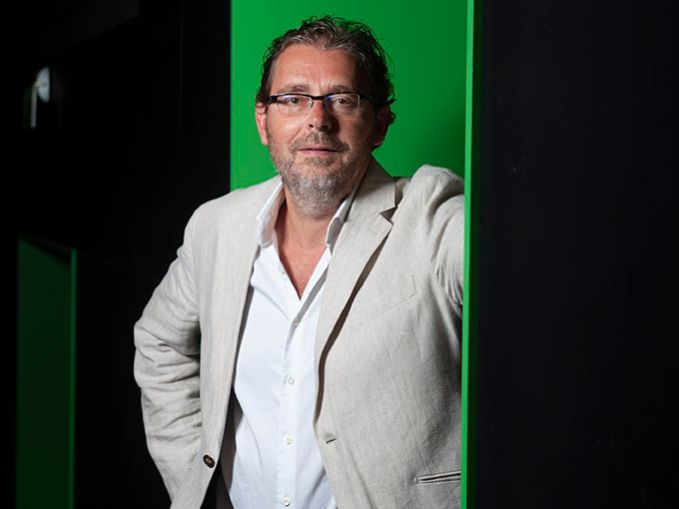The global hunt for the best use of healthcare budgets

FEB recently welcomed Maarten Postma to the Economics, Econometrics and Finance department as Professor of Global Health Economics. Postma is Director of the SHARE Research Institute in which FEB, the Faculty of Science and Engineering and the UMCG collaborate. He was also involved in the establishment of the Aletta Jacobs School of Public Health. Postma’s research focuses on the cost-effectiveness of drugs and vaccines. He has an extensive network of non-profit (WHO and EU) and for-profit (pharma) institutions and companies.
To contribute to the ‘greater good’ – that was the main reason why Maarten Postma chose a career as an academic in the field of health. ‘Healthcare is obviously an important field in our society, with all sorts of possibilities for innovative applications of economic methodologies. After my degree in Econometrics in Groningen I first worked in health insurance, but I found that too focused on finance – which I had also found less attractive during my studies. I then switched to the cost-effectiveness of drugs, which matched my Operations Research track, particularly simulation modelling. I now indirectly help countries determine the best way to allocate the resources that are available for healthcare, in the Netherlands, Europe and elsewhere in the world.’
From Indonesia to Zimbabwe
Postma’s efforts have become increasingly international over the last year. He is supervising projects in Indonesia, Vietnam, Ethiopia and Zimbabwe. ‘The Markov mathematical model helps us estimate the cost-effectiveness of a new vaccine, for instance. We first developed such a model for the Netherlands, Germany or the United Kingdom, and we then try to adapt it to circumstances in Indonesia, with the aid of research by PhD students from that country.’
Postma and his colleagues in Indonesia are also using this method to research the cost-effectiveness of a vaccine against cervical cancer. ‘We now know that this vaccine protects against all sorts of other types of cancer, so types that also occur in boys and men. Some countries have therefore already started also giving boys the cervical cancer vaccine. We are researching whether it would be a good idea to do this in Indonesia too. The results will enable us to advise the government on the efficient use of the available health budget.’
Big international differences
There are big international differences between vaccination programmes, says Postma. He sat on the Health Council of the Netherlands for years and is now on its British counterpart, the Joint Committee on Vaccination and Immunisation. ‘Efficiency is an important criterion in both countries, but I can clearly see the different approaches. The British vaccination programme is much more extensive. The Netherlands sticks very strictly to the limit of EUR 20,000 per ‘quality-adjusted life year’ for new vaccines, taking the price of the vaccine for individual use as a basis. But economies of scale might mean that only a quarter of that price remains if you guarantee a manufacturer that his vaccine will be included in a large national vaccination programme. In the UK they are more likely to base their calculations on this latter reality.’
Realistic medicine prices
Expensive medication is another big societal topic that Postma wants to shed light on through his new post at FEB. Several PhD students will focus on the topic. ‘People often claim that drugs are way too expensive and that the pharmaceutical industry exaggerates the development costs and makes too much profit. I want to research this. How high are the profit margins? And what do businesses need, given that they may also run more risks? What does it cost to develop a medicine and what is a fair price?’
Postma notes that there is often a conflict between government and industry. ‘I hope that objective scientific analyses can contribute to a joint solution. One promising Dutch initiative in that field is Fair Medicine. This organisation is working with the industry on realistic medicine prices that will make access to safe, effective and affordable medication possible and keep it so.’
Innovation in health economics
Interdisciplinary collaboration is the key to success here, says Postma. ‘The majority of the upcoming generation of academics have fairly monodisciplinary training. My aim is to bring together pharmacists, medical researchers and economic experts. I think it would be very useful. Much innovation in health economics occurs when methods from one discipline are applied to another. I would very much like to contribute to this in the coming years through my role at FEB. That would dovetail seamlessly with SHARE and the new Aletta Jacobs School of Public Health.’
Further reading:

